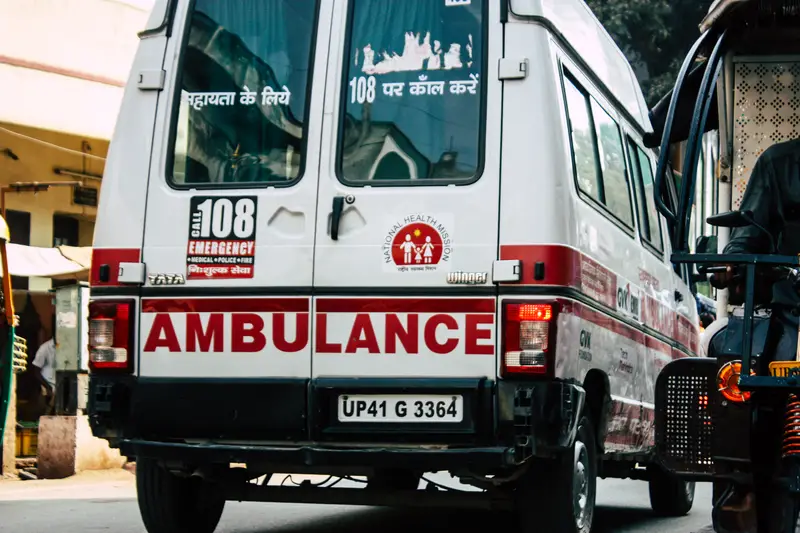The number of deaths from toxic liquor in northern Punjab, India, has reached 27, with several more individuals hospitalized in critical condition after ingesting locally produced spurious alcohol, officials confirmed on Wednesday, May 14, 2025.
Authorities have apprehended seven people on charges of distributing the tainted liquor to five villages located approximately 12 miles from the city of Amritsar in northern Punjab, as reported by senior police officer Maninder Singh.
In reaction to the fatal incident, officials have initiated a vigorous crackdown on the illegal liquor supply network operating in the region.
Medical teams have been dispatched to the affected villages to assess residents who might have consumed the toxic alcohol, stated Sakshi Sawhney, a senior government official in Amritsar. Healthcare workers are conducting door-to-door visits to identify symptomatic individuals and transfer them to hospitals to avert further fatalities.
Nine individuals have been detained, including the supplier and the alleged leader of the operation. The local government has suspended four officers for negligence and launched departmental inquiries against those found lacking in their duties.
Preliminary investigations indicate that victims consumed liquor from a single source on the evening of Sunday, May 11, with the initial deaths reported on Monday. The death toll has been rising as more people succumb to the toxic effects.
A senior police officer mentioned that those detained had acquired methanol online, diluted it, and distributed it to sellers, who then sold the contaminated drink to consumers in packets.
“The police have launched a crackdown to destroy the network of spurious liquor supplies in the area following the incident,” Singh said.
Deaths from the consumption of illicit and contaminated liquor remain a consistent issue across India, particularly in rural areas where economic conditions lead consumers to opt for cheaper alternatives despite the health risks.
The deadly event in Punjab comes after a similar tragedy in southern India’s Tamil Nadu state, where at least 34 people died and over 100 were hospitalized after consuming alcohol laced with poisonous methanol in the Kallakurichi district.
In 2020, over 120 people died from spurious liquor in Punjab, underscoring the ongoing challenge authorities face in curbing the illegal trade.
Deaths linked to bootleg liquor often result from the addition of toxic chemicals like methanol, which producers use to increase alcohol content and potency while minimizing costs. The illicit liquor industry remains highly profitable as manufacturers evade taxation and sell their products at lower prices compared to regulated brands.
The issue of toxic liquor is described as a complex socio-economic problem tied to poverty and the demand for affordable alcohol. Many victims are day laborers and others with limited incomes who cannot afford licensed alcohol brands.
Two businessmen based in Delhi have also been arrested in connection with the Punjab incident, suspected of supplying the methanol in bulk through online channels. The chemical was subsequently used in the production of the lethal alcohol.
Families of the victims have been left devastated by the losses. Local media have shown images of grieving relatives at hospitals and in villages as they receive news of loved ones who fell victim to the poisoned alcohol.
Similar incidents have occurred in other Indian states, including Bihar and Gujarat, where dozens have died from drinking tainted or illegally brewed alcohol in recent years.
The enforcement challenges remain substantial as the production and distribution networks for illicit alcohol often operate in remote areas with limited regulatory oversight. Local authorities frequently discover operations only after casualties increase.
Health officials note that methanol poisoning can lead to blindness, severe organ damage, and death even in small quantities when consumed. Symptoms typically appear hours after ingestion, making rapid medical intervention critical for survival.
In an unrelated case that highlights the broader issue of illegal alcohol in India, authorities in 2024 uncovered a spurious liquor supply network involving ex-servicemen operating from Karnataka. The operation involved selling fake liquor branded as “liquor from military” with counterfeit labels. Police arrested 14 suspects and seized over 2,400 bottles in connection with that case.
As medical teams continue their work in the affected Punjab villages, authorities are simultaneously working to cut the supply of illegal liquor while implementing longer-term interventions to prevent similar tragedies in the future.











